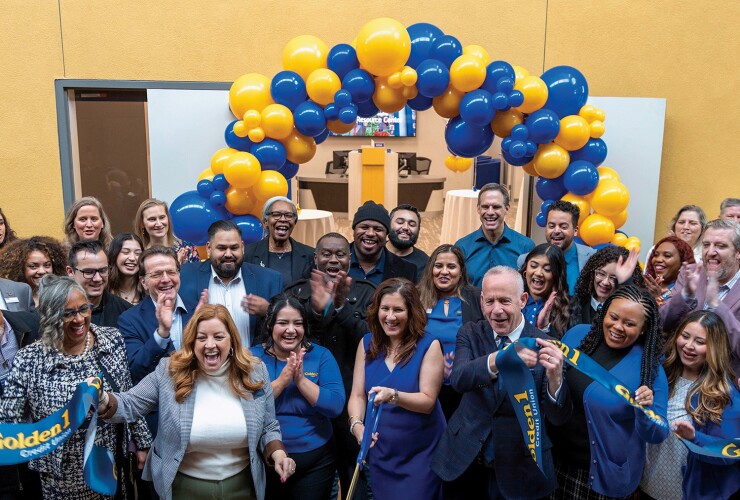Most credit unions are dabbling in artificial intelligence around the edges rather than bringing the technology into the heart of their deposit and lending businesses.
In American Banker's annual
Few spelled out a more comprehensive game plan than that. But prioritizing AI use cases for both employees and members should be a strategic priority for credit unions in the coming year, said Jim Perry, senior strategist at Market Insights. He primarily works with community banks and credit unions with fewer than $2 billion of assets and finds that few have an overall strategy for AI.
Beyond its potential for catching fraud, improving customer service and making other functionality more efficient, an innovative approach to AI can attract and excite employees, who are getting more comfortable with AI in everyday life.
"AI is so rapidly reshaping our industry that employees are increasingly walking into credit unions and banks and asking how some of these new tools are being utilized, because it's showing up in every other aspect of their lives," Perry said.
At the same time, he finds that there is a lot of anxiety among credit unions that they will get left behind as larger institutions use AI more effectively.
A March
"In terms of systematizing the use of generative AI especially, [credit unions] are not getting far past chatbots and using certain tools to speed up production of their blog or social media posts or automating what they perceive to be safe uses of AI," Perry said.
There are a few exceptions on American Banker's list of Best Credit Unions to Work For that are laying out more comprehensive or unusual experiments.
CPM Federal Credit Union in North Charleston, South Carolina, is leaning into a new AI-driven phone system, which is set to go live in the third quarter of 2024, using software from customer experience company Nice, with call summarization and natural language processing. Nearly a year ago, CPM deployed a tool from credit decisioning platform Scienaptic AI that handles most consumer loan decisions so underwriters can focus on complex cases. Many of the seven new fraud detection tools the $631 million-asset CPM added in the last year also use AI.
Perry sees fraud detection and call center functionality, such as call summarization, as two of the best use cases of AI. Arizent's March report surveyed financial institutions for the top use cases incorporating generative AI that they were eyeing for the next 12 to 18 months. Inside the business, those include office productivity, fighting fraud and helping developers generate code. For client-facing matters, those include improving emails and marketing communications, helping customer service representatives answer questions, and personalizing the customer experience.
Like CPM, Golden 1 Credit Union in Sacramento, California, is taking a multi-pronged approach.
"AI is there not to replace humans and intelligence, but to augment our intelligence," chief digital officer Jay Tkachuk said in an interview.
The $19 billion-asset Golden 1 approaches AI through three prisms. "Everything we do has to bring value to our members and us, be secure, and be ethical," Tkachuk said. Golden 1 uses technology from credit decisioning company Zest AI, "which allows us to say yes to more people that apply for our credit products," he said. It is also experimenting with large language models, albeit with caution. Employees can use Microsoft Copilot to condense long documents, such as presentations or reports, and search within them for specific tidbits. They can also use Copilot to help draft reports and organize information.
"It's still in experimental mode," Tkachuk said. "The technology has not been proven, and frankly we still don't trust it."
Even more experimental is Golden 1's exploration into whether generative AI can bridge the gap between the old coding language of its core banking system — a rare programming skill set — and newer programming language frameworks that are broadly adopted by the market and taught in schools today.
It's one example of how being creative with AI could improve the work experience and energize the employee base.
"If we can make their work that much easier and they know they're a part of an innovative institution, that improves the experience," Tkachuk said.







